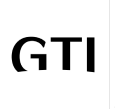Deep Learning and Digital Marketing, a transhumanistic marriage?
Business Insider just released a report on Deep Learning. After reading it, we wanted to share with you some information that seemed relevant to us.
According to Wikipedia, Deep Learning is “a set of automatic learning methods attempting to model data with a high level of abstraction through different non-linear transformations articulated architectures.”
Ok, fine. This is all very interesting but how does this relate to digital marketing and consumers in general? How will this really change things? The answer lies in the second part of the definition. Let us read it together: “These techniques have led to significant and rapid progress in the areas of sound or visual signal analysis including facial recognition, speech recognition, computer vision, automated language processing”. That is where it becomes interesting.
Artificial intelligence, often used as a generic term to describe the types of technologies that can simulate human intelligence, is one of the most popular topics in great number of industries. Computers are taught to contextually analyze data to provide specific information or to trigger an event based on predefined results.
You see, marketing is based on three main activities: collecting, processing and reporting data. De facto, marketers are harnessing the power of Deep Learning to gain valuable insights on their customers, automate business development tasks, and improve information transfer. According to Salesforce, half (51%) of marketers currently use AI and an additional 27% are expected to integrate the technology by 2019.
This is the highest annual growth in the advanced technologies industry, beyond the Internet of Things and marketing automation. The thing is, as the amount of consumer-generated data increases, the computing features of Deep Learning (such as natural language processing) become more and more important for decision-making.
The 4 fundamental informations related to Deep Learning.
- For several decades, research stagnated without major discoveries; until the recent acceleration of deep learning techniques, which has boosted the performance of algorithms and allowed them to tackle much more complex tasks. The speed with which innovation takes place contributes to a lack of preparation for marketers in its implementation. When some of them were asked about using this technology, the majority did not feel ready.
- Deep Learning goes far beyond simple data analysis and evolves rapidly to data generation as machines automate two of the top five human senses: sight and hearing. It is now possible for them to gather information from media such as voice and video, without having to go through a human intermediary to classify or describe various types of information manually. As an example, know that very soon, say in the next 5 years, your smartphone will read your thoughts by analyzing your brain waves and act accordingly.
- Deep Learning is changing the marketing business. Marketers will move from reactive planners to proactive planners. The analyses provided will help professionals plan and execute their actions more effectively, mainly in three major areas: segmentation, monitoring and identification of needs.
- Last but not least: creativity. Many experts keep reminding us that the human being will always be necessary for the creative phase. Although it is too early for artificial intelligence to automatically create editorial content or assemble the right image with the right message, it changes incredibly fast. Make sure to check out our previous article (here) if you want to know more about the disappearance of creative jobs.



